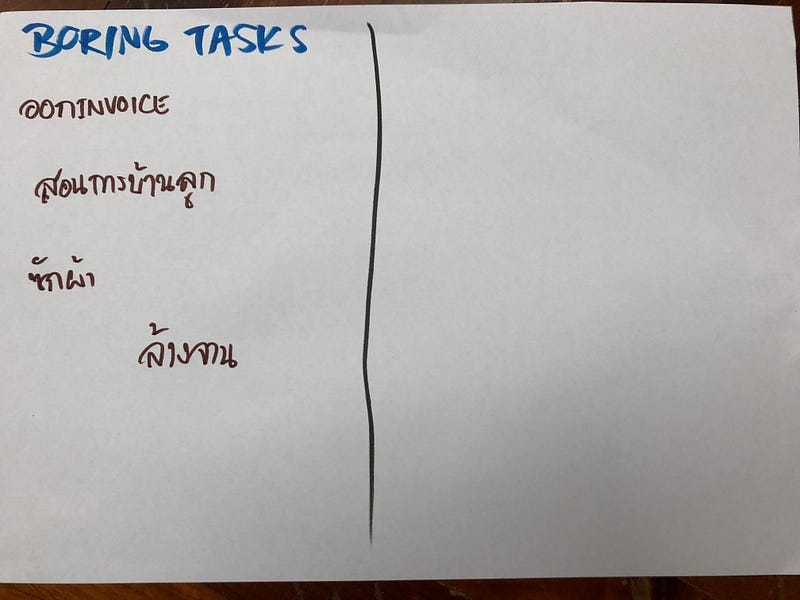Can you help learning?
This question is about the learning of both kids and adults.
"There is not much you can help"
During the last semester, I attended a parent-teacher meeting. A comment from the teacher struck me in particular - "there is not much you can help" regarding your kid's learning. She meant that they had to work it out on their own. This was different than what I did with my daughter. When my daughter struggled, I tried to help her through explaining the concept to her, analyzing the problem with her, etc. Often, she could "get it" with my help, but still unable to solve similar problems on her own. Instead, the teacher suggested to leave her alone. This triggered me to ponder on the question - can you help learning?
I have been training and coaching on product development and systems thinking for many years. During my training and coaching, when people struggled, I explained more in different ways, gave more examples, and showed my analysis to them. They seemed getting it at that moment, but still struggled next time. For instance, many people said that they could understand my modeling, but could not do it on their own. It seems that the situation is not much different. Perhaps, they just have to work it out on their own, and there is not much you can help.
One thing to notice is the distinction between knowledge and ability. It is relatively easier to convey knowledge, and the question is - can we help learning ability?
Deliberate practice
On my reflection, I revisited the concept of deliberate practice. By the way, I made a topic presentation "deliberate practice for agile coaching" at Scrum Gathering many years ago.
Deliberate practice is characterized by the following five elements.
1. it is designed specifically to improve performance
- in almost every field, there is a body of knowledge about how its performance is developed and improved, based on which practice activities are designed
- choose activities in the "learning zone", rather than "comfort zone" or "panic zone"
2. it can be repeated a lot
- repeat demanding activities in the learning zone
- repeat at high volume
3. feedback on results is continuously available
- you can't get any better without feedback
Look at these three elements, teachers can actually help a lot. They play an important role to make deliberate practice happen. To illustrate:
- teachers master the body of knowledge, thus able to design practice activities for various aspects of the field. This could be the syllabus for a subject; or the kata for coding or problem solving.
- teachers evaluate where students are in terms of ability level, and ensure that students practice in the learning zone.
- teachers provide feedback. It could be simply correct answers for exercises, but also subjective judgement, or even through analyzing the results together with students.
4. it is highly demanding mentally
- it requires an effort of focus and concentration to improve the unsatisfactory performance of specific aspects.
5. it isn't much fun
- doing the painful and difficult activity over and over may not be fun.
Look at these two elements, they correspond well with the statement "there is not much you can help". To illustrate:
- practicing coding kata regularly is a sign of professional developers, but unfortunately few people hold by it over a long period.
- one of my personal experiences while learning systems modeling is to model for the same topic in many iterations, improving both the model and the thinking. The below picture is the many versions I created while exploring the dynamic with various number of backlogs.
- good students keep working on same problem, and don't give up until they master it.
Learners must keep doing those practice activities that are highly demanding mentally and not much fun, in order to make progress.

Help to sustain
Because of those struggling elements, deliberate practice is hard to sustain. Can we still help in those regards? There are two potential areas.
1. motivation to increase ability
Where does the motivation come from? You may want to create something, while certain abilities are necessary. Or, you may simply have the desire to get better at something, and that mastery itself provides the motivation. The former relates to the discipline of "personal mastery" and the latter relates to the drive. Those are intrinsic motivations, thus eventually still up to learners themselves.
I once wrote an article "create discomfort for continuous improvement". Every discomfort is an opportunity for growth. There is no shortcut, but it can also be considered as good news, as not many people will pursue it.
2. learning mindset
People naturally choose to do enjoyable things, which are often what you can already do well. While deliberate practice means that you insistently seek out what you are not good at, experience the struggle to get better, then enjoy the progress. This requires the right learning mindset, which is essentially mental model for learning - assumptions and beliefs about learning. The right learning mindset is that learning is associated with setbacks, you hold by, and there will be joy after getting over it.
Mental model is developed through experience and reflection. Experience is certainly personal, and you can't transfer your feeling to others. However, you can share your experience, maybe just maybe it prepares others so that they are more likely to hold by when facing setbacks. When they want to give up, you can encourage them and suggest them to take a break. And after they finally get over it, you ask questions to help deepen that experience so as to distill it into their own mental model. Perhaps even if deliberate practice isn't much fun, it can be satisfying after all.?
Well, it seems that we can help learning quite much, both in designing learning content and process, and in developing learning attitude.





